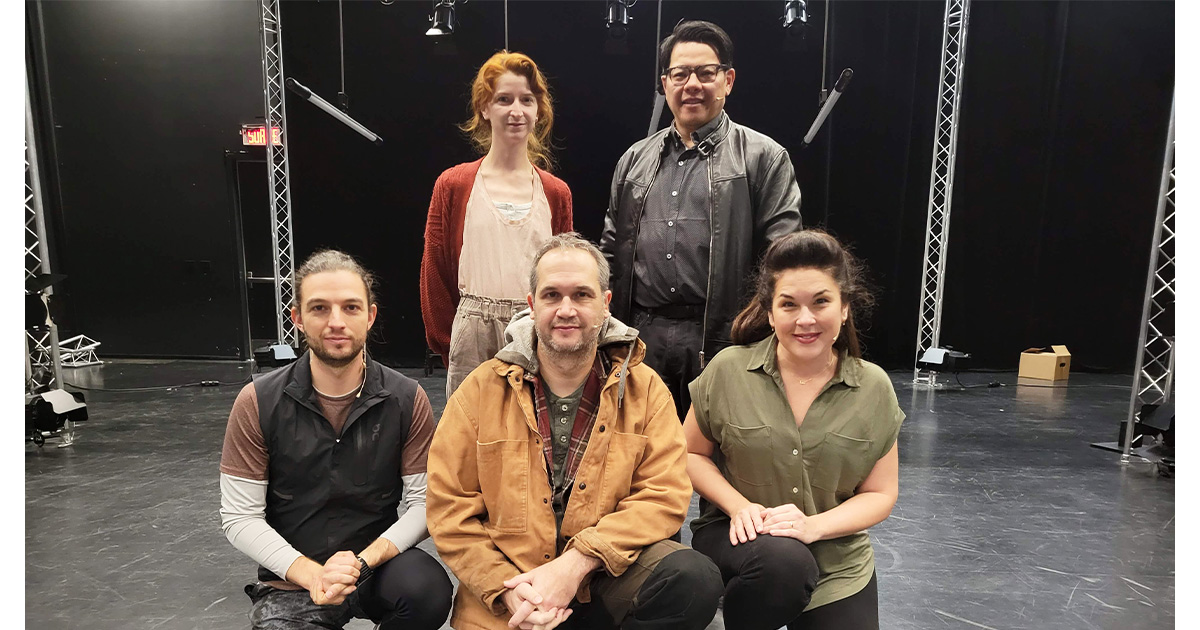Next Tuesday night, Nov. 8, the Théâtre des Petites Lanternes will hold the premiere performance of its Project Monarques, a theatrical exploration of the operational stress injuries and post-traumatic stress lived by Canadian veterans, military personnel, and their families. As has been the case with projects by the Sherbrooke-based theatre company in the past, the play has been built around real-life accounts gathered from people across Canada over the last several years.
Angèle Séguin, co-author of the final script, explained that the idea for this project came directly from a group of veterans and military families looking for a way to express the challenges that go along with post-traumatic stress and military service.
Project Monarques, named with the long and perilous annual journey of the monarch butterfly in mind, is built around the theatre company’s signature creative method, “the great harvest of words.” In this process, people in the affected community are invited to attend writing workshops where they fill out an anonymous notebook with their thoughts and reflections on the subject matter at hand. In the past, the technique has been used to create stories using the words and experiences of the survivors of the Lac-Mégantic rail disaster as well as with communities in Haiti and the Democratic Republic of the Congo.
In the case of this project, workshops were held in French and in English in communities and on military bases across Canada, and then later through videoconference when the COVID-19 pandemic prevented face-to-face interaction.
“The process of the great harvest, where we use notebooks, worked very well for unlocking that process and allowing people to be honest and frank about what they have experienced,” Séguin said. “When people gave us their notebooks, there was this sense of liberation, and it gave me a great sense of responsibility.”
Subscribe now for full story and more.
Sharing stories of veterans, military personnel, and their families
By Gordon Lambie, Local Journalism Initiative






